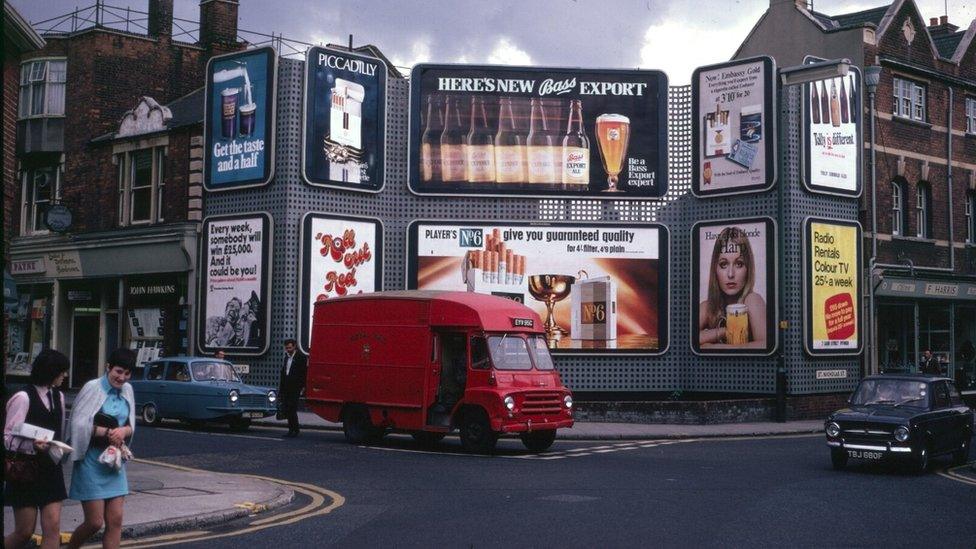Ipswich: Appeal for memories of town's industrial heritage
- Published
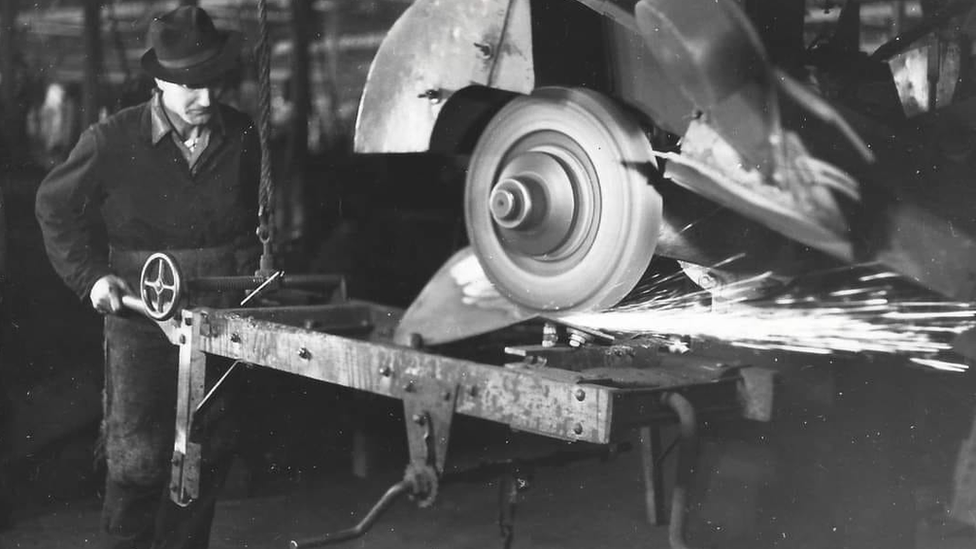
A fedora-wearing machine operator during Ipswich's industrial heyday
The port of Ipswich was once a thriving hub of industry and engineering, tapping into the zeal of eager young apprentices for their workforces. Now the theatre group Eastern Angles is compiling an archive of the people who earned a living there, called Work Furnace, which it hopes will reignite the spirit of the town's disappearing industrial age.
The project, funded by Historic England, wants to hear from former workers in Ipswich who remember their time at the town's factories and workshops.

'We used to work hard - grafting'
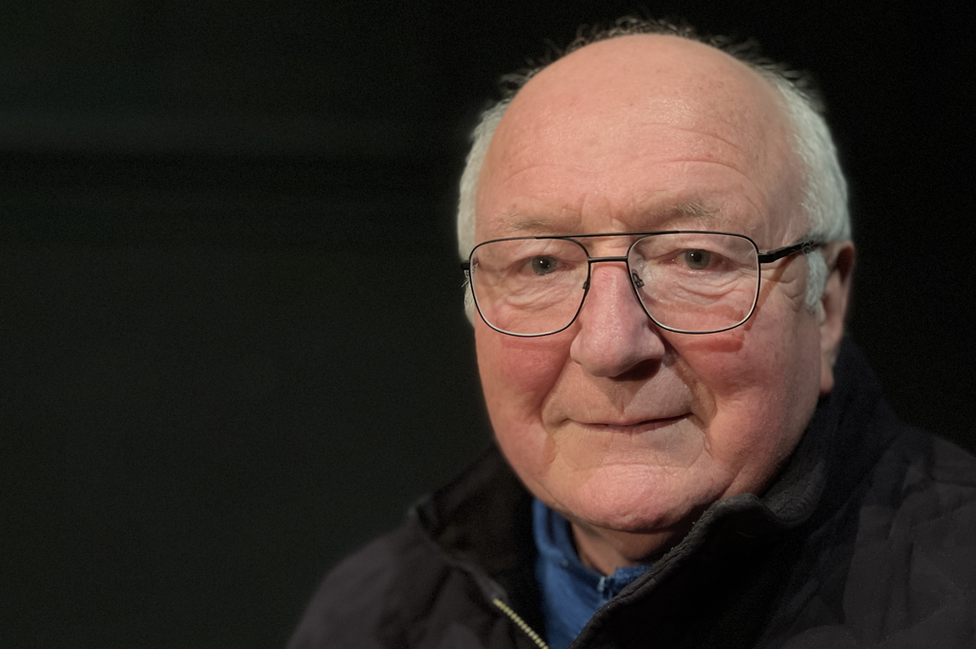
Martin Stiff, 78 from Ipswich, remembers the camaraderie of the workshop at Ransomes and Rapier in the 1960s
Martin Stiff, 78, worked as a constructional plater for Ransomes & Rapier - an engineering manufacturing firm that made railway equipment and cranes.
He began as an apprentice in April 1959, based at the Waterside Works on the west bank of the River Orwell.
"As apprentices, we made more money in bonuses than wages," Mr Stiff said.
"My first [weekly] wage was one pound, 19 shillings and tuppence [£1.96 in decimal currency]. I used to give mum the pound and keep 19 and tuppence for myself.
"Every time I pass a cement mixer in my car, I think 'pounds, shillings and pence'. I used the money to travel to Ipswich Town games.
"With us lads, the comradeship was unbelievable. We used to go on holidays together, Skegness, Bognor Regis, Barry Island, half a dozen of us.
"We used to go to the football, we were at college together in Colchester.
"We used to work hard, grafting."
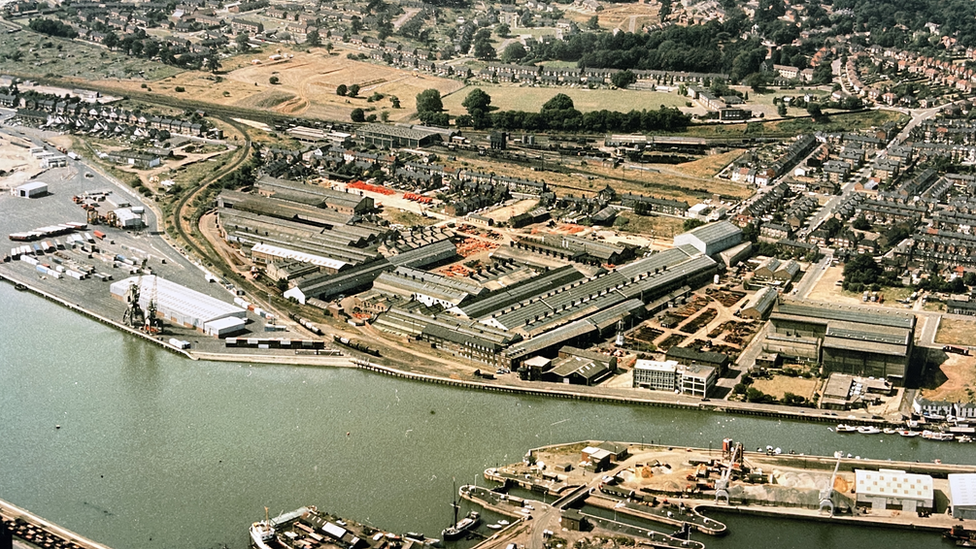
The Ransomes & Rapier site is in the centre of this aerial photograph looking west from the 1970s, with the entrance to the wet dock pictured in the foreground
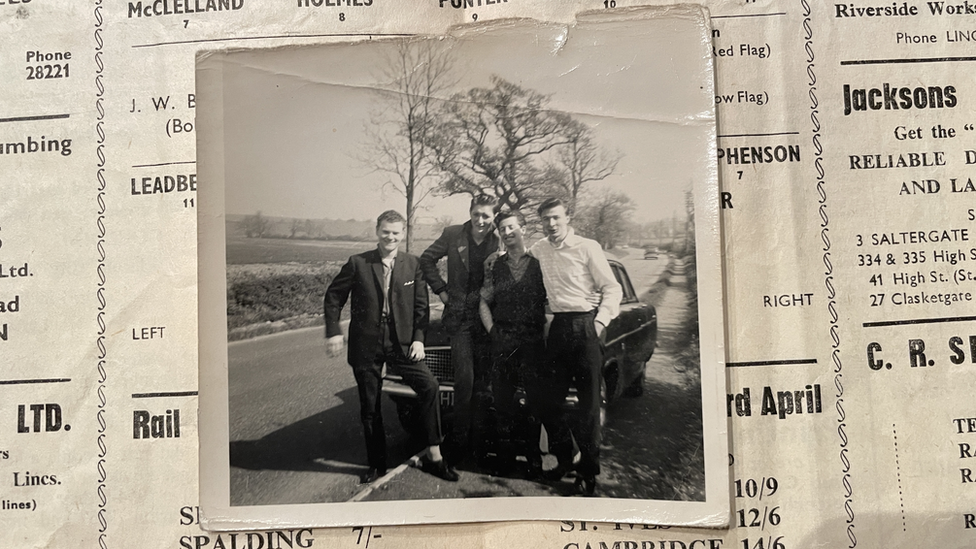
Mr Stiff (second left) said he socialised and holidayed with the friends he made working in Ipswich
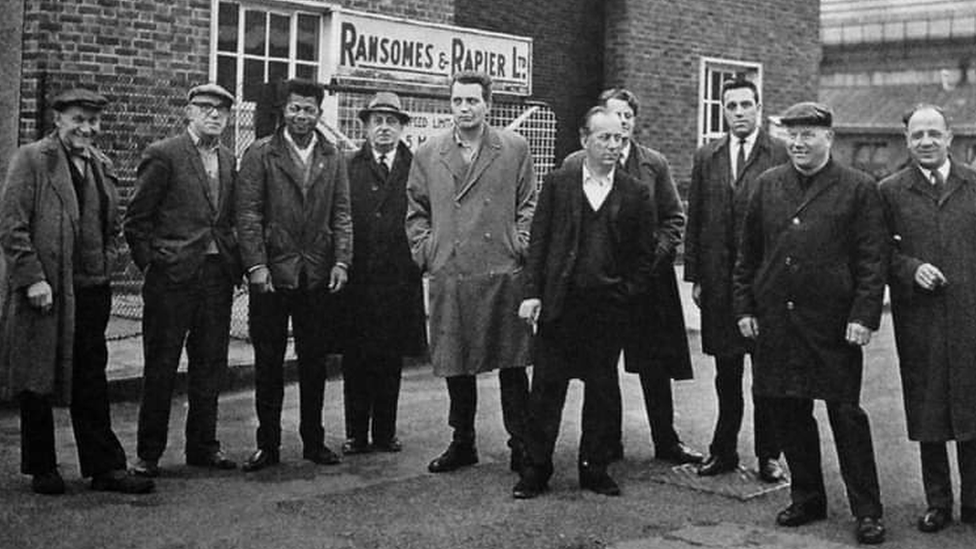
Workers outside Ransome and Rapiers in Ipswich
He says he feels sad that companies like his no longer exist.
"Wherstead Road, Nacton Road, the railway workshops, the amount of people that used to be involved in engineering - where are they working now?
"I got a job at Crane's to have a bit of change on the Thursday; on the Friday I opened The Star to see they were making about 400 redundant. It happened overnight."
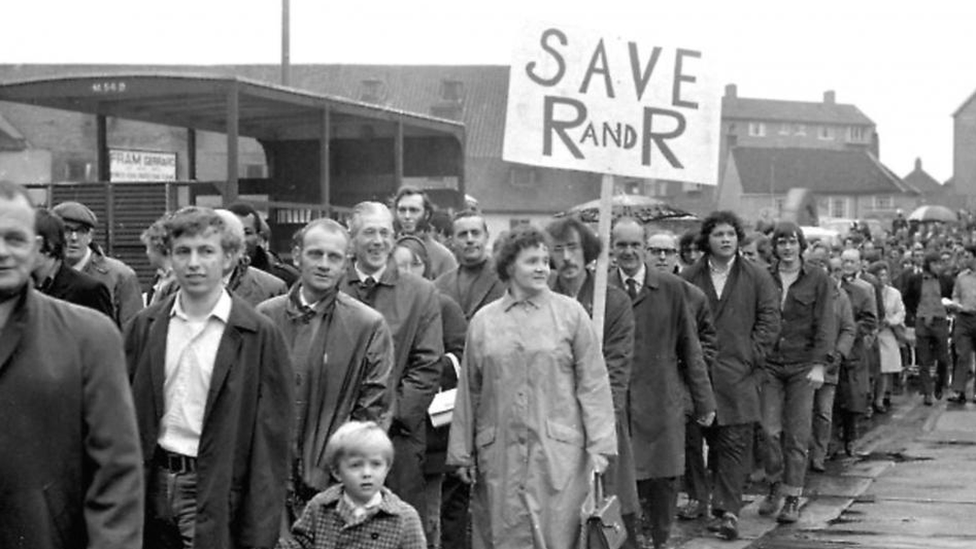
A protest at the Ransomes & Rapier works in March 1972

'We were treated very well'
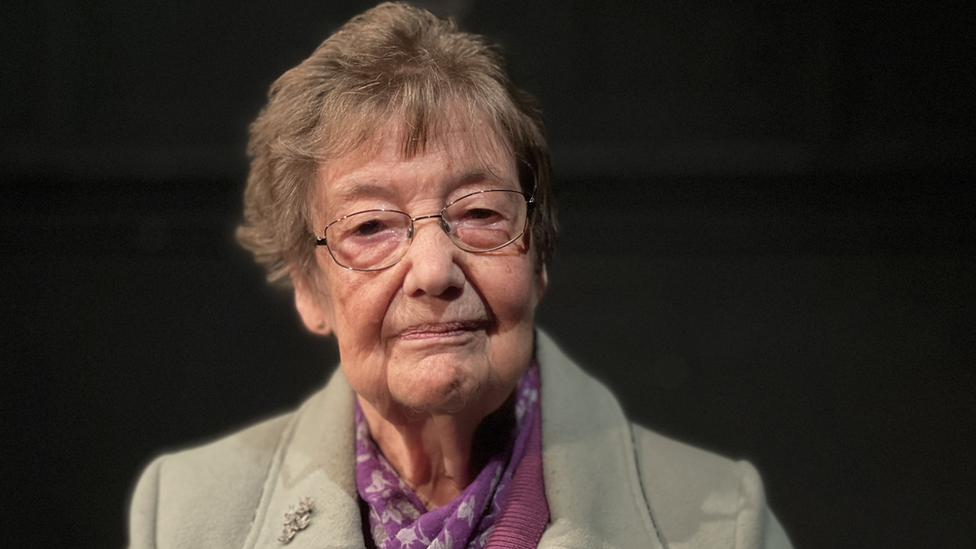
Sylvia Halls, 84, worked in the laboratory at Manganese Bronze, which made non-ferrous metals for industry
Sylvia Halls, 84, worked in the laboratory at Manganese Bronze, which was based on Hadleigh Road, from 1952 until 1958.
The company produced non-ferrous metals for, among other things, shell casings and ship propellers.
Sylvia says she earned 35 shillings in her first pay packet in 1952: "That's just over a pound because we were told that we were apprentices".
"In the laboratory it was good because there was a lot of us, a lot of girls, so we had great times because we all worked together and started from the same thing.
"We were treated very well by the men, in fact I think they felt very protective of us. We worked in a foundry lab, a smaller lab.
"They couldn't cast their furnace until we said it was OK; they put up with waiting very well.
"The foundrymen were quite rough and ready, but they used to try not to swear when they came into the lab; one of them could hardly talk."
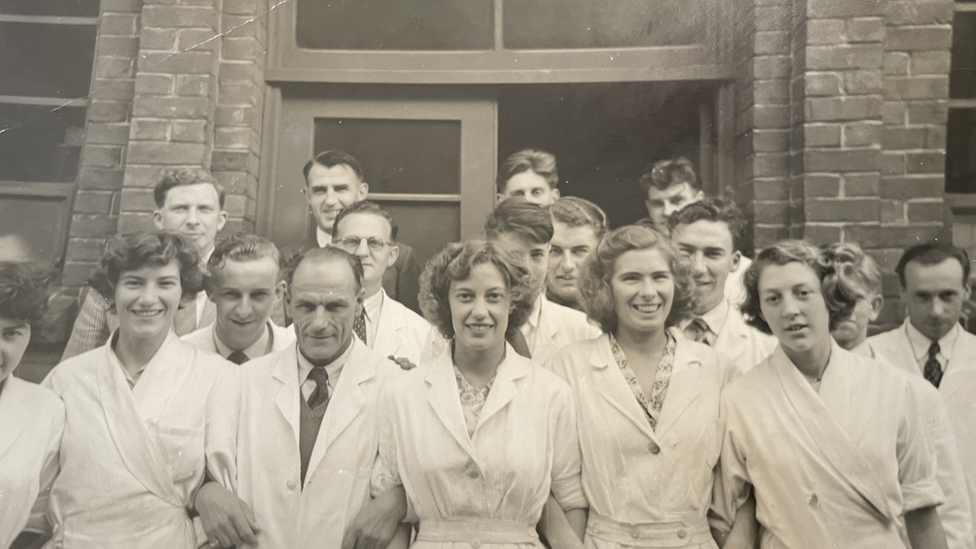
Sylvia Halls (centre) with some of her colleagues at Manganese Bronze
Sylvia's husband also worked at the firm for 40 years.
"There was Manganese Bronze and Eastern Counties Farmers there and then it just got rundown and wasn't needed any more," she said.
"I think it's sad and I think there's not going to be enough apprentices to get it started again.
"That's what we were called, but we didn't end up with any certificates or anything; that was used in a way to give us not very much money.
"Where do youngsters go for jobs now?"

'We've only scraped the surface'
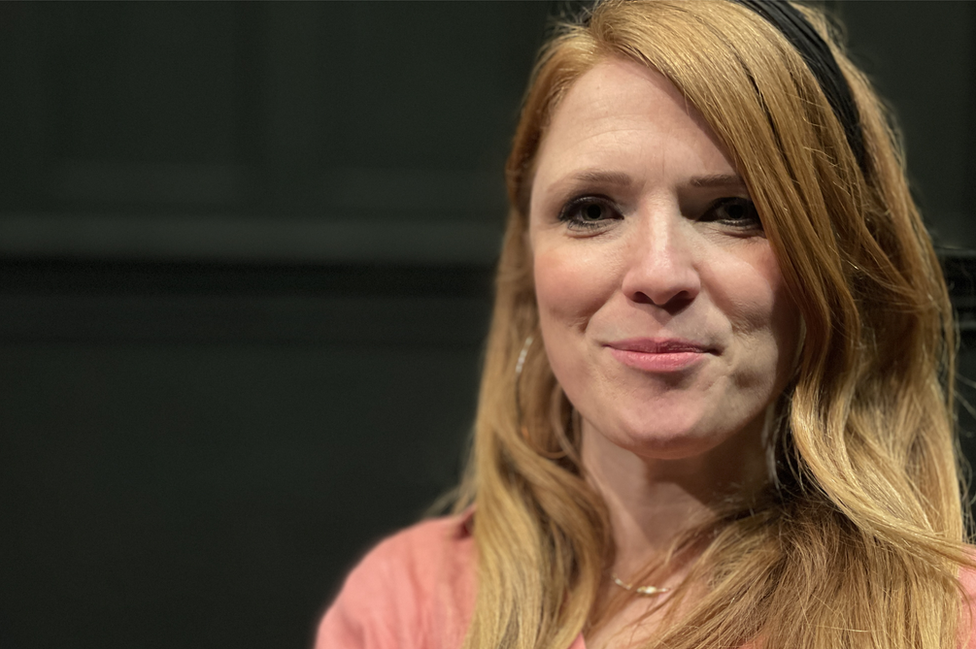
Hannah Houghton says listening to people's stories and experiences has been "a privilege"
Hannah Houghton, project officer for Work Furnace, said the aim was to "celebrate people's stories".
Thousands of people worked in the town's buzzing industrial areas, and the project is holding Factory Sessions, external which will cover sectors including clothing, food and drink, printing, tobacco and fertiliser, with names including Jaegar, Britton & Bannister, Betabake, John Player & Churchman's, Fisons and Trident Cars.
"There are visible reminders everywhere, if you walk down Ipswich waterfront you can see remnants of the flour mill, of Pauls Malt," Ms Houghton says.
"Where there were factories, there are now houses.
"Ipswich is known for its agricultural background in terms of industry, but it's becoming clear to me that it was a key engineering and clothing manufacturing town, so different to what it is today.
"Who better to talk to about what these places were like than the people that powered these companies - the workers."
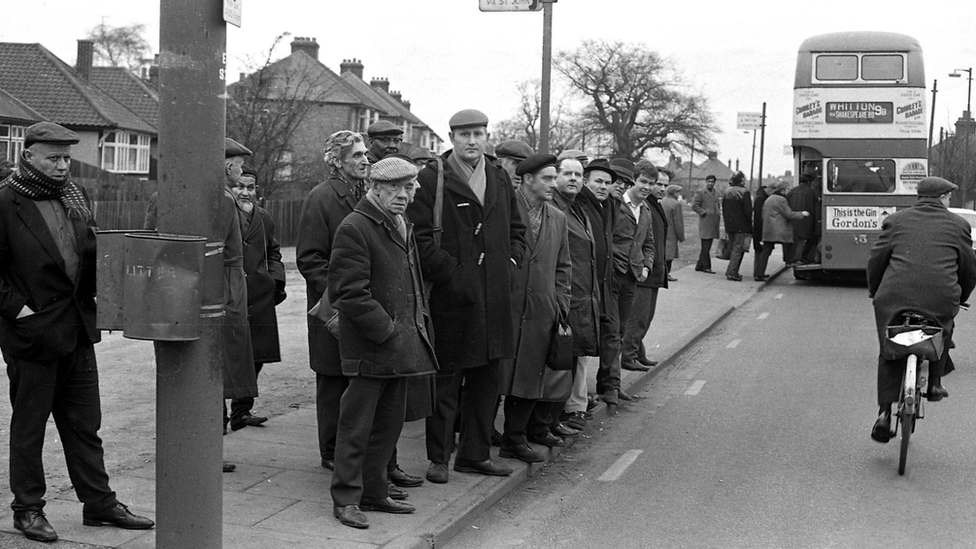
Factory workers at a bus stop in Ipswich
She says more than 700 people have already shared footage, photos and memories on a dedicated Facebook page, external.
"We've only scraped the surface," she added.
"Some of these companies fell or closed very suddenly.
"There's a sadness and perhaps a little anger in those accounts of people who gave their absolute all to their jobs; their dads worked there; they have a family history.
"But I think that pride the workers feel will resonate."

Find BBC News: East of England on Facebook, external, Instagram, external and Twitter, external. If you have a story suggestion email eastofenglandnews@bbc.co.uk, external
- Published8 December 2022
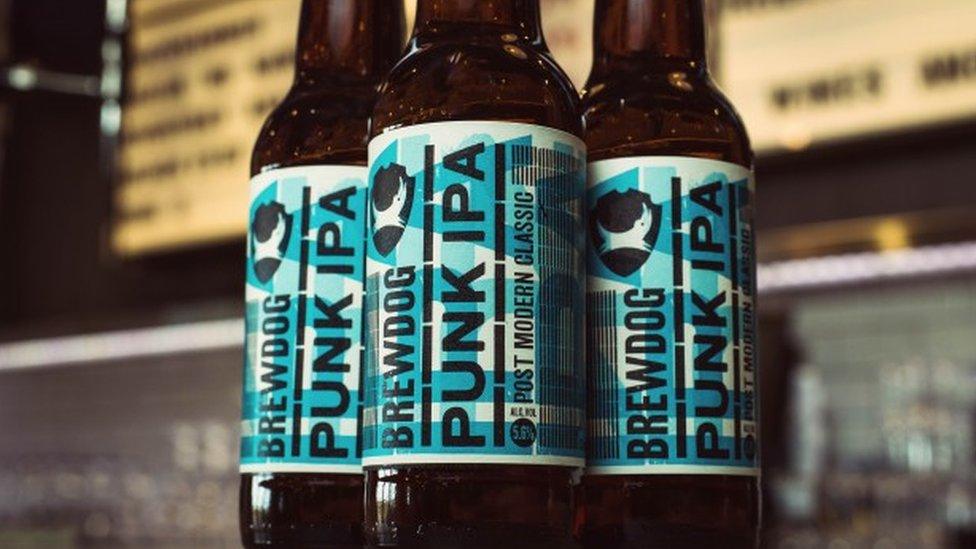
- Published20 December 2022
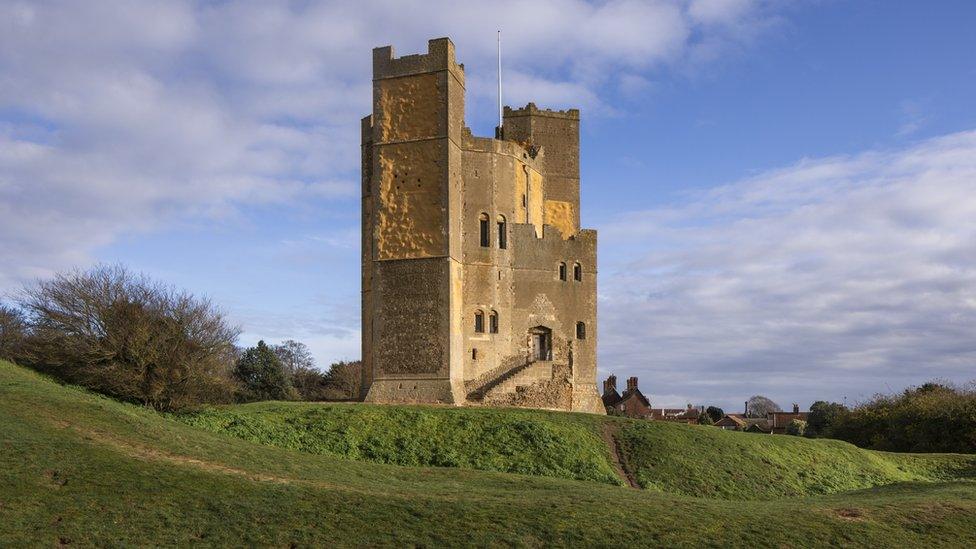
- Published28 May 2022

- Published12 October 2021

- Published9 October 2022
- Published22 January 2015
